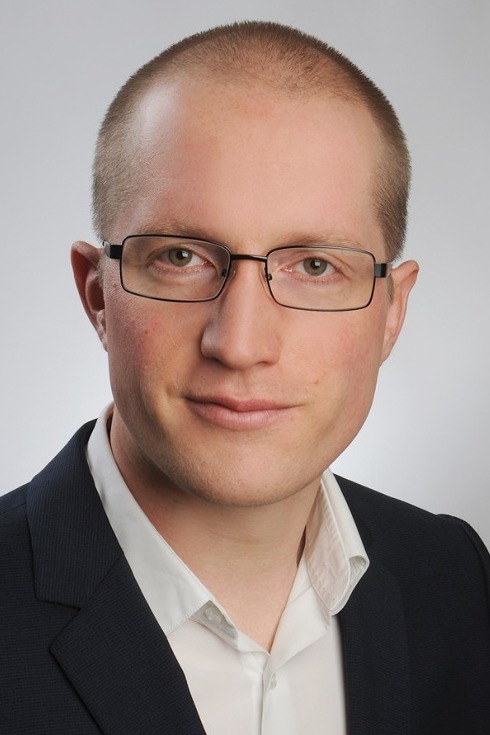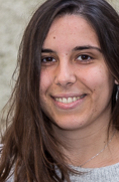

Brain tumors are the leading cause of cancer-related deaths in infants, children, and adolescents. Our lab is mostly focusing on embryonal brain tumors including medulloblastoma, atypical teratoid rhabdoid tumors (ATRTs), and embryonal tumors with multilayered rosettes (ETMRs). Due to the lack of targeted therapies for these tumors, survival rates remain poor.
The primary aim of the lab is to identify novel targeted therapies for children with brain tumors that will result in improved survival rates and fewer long-term side effects. We are currently employing genome-wide CRISPR/Cas9 knockout screens in order to develop comprehensive maps of genetic dependencies for distinct forms of embryonal brain tumors. We correlate these essentialities with molecular features such as genetic alterations and global gene expression profiling in order to gain further insights into the molecular biology of these devastating tumors. Furthermore, we validate the most promising candidates in in vitro drug screens and in vivo mouse models to further evaluate their potential for clinical translation.
Resistance to anti-cancer treatments is a major obstacle to a cure for many brain tumor patients. We are therefore also interested in tumor-drug interactions, and how those relate to novel combination therapies and potential resistance mechanisms that will allow cancer cells to overcome targeted therapies.
Selected publications
Niessner H, Schmitz J, Tabatabai G, Schmid A, Calaminus C, Sinnberg T, Weide B, Eigentler TK, Garbe C, Schittek B, Quintanilla-Fend L, Bender B, Mai M, Praetorius C, Beissert S, Schackert G, Muders M, Meinhardt M, Baretton GB, Dummer R, Flaherty KT, Pichler BJ, Kulms D, Westphal D, Meier F. PI3K pathway inhibition achieves potent antitumor activity in melanoma brain metastases in vitro and in vivo. Clin Cancer Res. 2016. [Epub ahead of print]
Skardelly M, Brendle E, Noell S, Behling F, Wuttke TV, Schittenhelm J, Bisdas S, Meisner C, Rona S, Tatagiba MS, Tabatabai G. Predictors of preoperative and early postoperative seizures in patients with intra-axial primary and metastatic brain tumors: A retrospective observational single center study. Ann Neurol. 2015;78(6):917-28.
Weller M, Tabatabai G, Kästner B, Felsberg J, Steinbach JP, Wick A, Schnell O, Hau P, Herrlinger U, Sabel MC, Wirsching HG, Ketter R, Bähr O, Platten M, Tonn JC, Schlegel U, Marosi C, Goldbrunner R, Stupp R, Homicsko K, Pichler J, Nikkhah G, Meixensberger J, Vajkoczy P, Kollias S, Hüsing J, Reifenberger G, Wick W; DIRECTOR Study Group. MGMT Promoter Methylation Is a Strong Prognostic Biomarker for Benefit from Dose-Intensified Temozolomide Rechallenge in Progressive Glioblastoma: The DIRECTOR Trial. Clin Cancer Res. 2015 May 1;21(9):2057-64. doi: 10.1158/1078-0432.CCR-14-2737. Epub 2015 Feb 5.
Wirsching HG, Krishnan S, Florea AM, Frei K, Hasenbach K, Reifenberger G, Krayenbuehl N, Weller M, Tabatabai G. Thymosin β4 gene silencing decreases stemness and invasiveness in glioblastoma. Brain 2014;137:433-48
Gulbins E, Palmada M, Reichl M, Lüth A, Böhmer C, Amato D, Müller CP, Tischbirek CH, Groemer TW, Tabatabai G, Becker KA, Tripal B, Staedtler S, Ackerman TF, van Brederode J, Alzheimer C, Weller M, Lang UE, Kleuser B, Grassme H, Kornhuber J. Acid sphingomyelinase-ceramide system mediates effects of antidepressant drugs. Nat Med 2013;19:934-938
Gramatzki D, Herrmann C, Happold C, Becker KA, Gulbins E, Weller M, Tabatabai G. Glioma cell death induced by irradiation or alkylating agent chemotherapy is independent of the intrinsic ceramide pathway. PLoS One 2013; 7;8(5):e63527
Spescha RD, Shi Y, Wegener S, Keller S, Weber B, Wyss MM, Lauinger N, Tabatabai G, Paneni F, Consentino F, Hock C, Weller M, Nitsch RM, Lüscher TF, Camici GG. Deletion of the ageing gene p66Shc reduces early stroke size following ischaemia/reperfusion brain injury. Eur Heart J. 2013; 34: 96-103
Wick W, Platten M, Meisner C, Felsberg J, Tabatabai G, Simon M, Nikkhah G, Papsdorf K, Steinbach JP, Sabel M, Combs SE, Vesper J, Braun C, Meixensberger J, Ketter R, Mayer-Steinacker R, Reifenberger G, Weller M. Temozolomide chemotherapy alone versus radiotherapy alone for malignant astrocytoma in the elderly: the NOA-08 randomized, phase 3 trial. Lancet Oncol 2012; 13:707-715
Hasenbach K, Wiehr S, Herrmann C, Mannheim J, Cay F, von Kürthy G, Bolmont T, Grathwohl SA, Weller M, Lengerke C, Pichler B, Tabatabai G. Monitoring the glioma tropism of bone marrow-derived progenitor cells by two-photon laser scanning microscopy and positron emission tomography. Neuro Oncol 2012; 12:302-307
Schraivogel D, Weinmann L, Beier D, Tabatabai G, Eichner A, Zhu JY, Anton M, Sixt M, Weller M, Beier CP, Meister G. CAMTA is a novel tumor suppressor regulated by miR-9/9* in glioblastoma cells. EMBO J 2011; 30, 4309-4322

Neuro-Oncological Outpatient Clinic
The neurological and neurosurgical Neuro-Oncological Outpatient Clinic have been united by the Interdisciplinary Division Neuro-Oncology under the roof of the Centre for Neuro-Oncology at the Southwest German Cancer Centre. The range of service of the Outpatient Clinic includes the pre-and post-operative consultations, care and treatment of the patients with neuro-oncological tumors.











